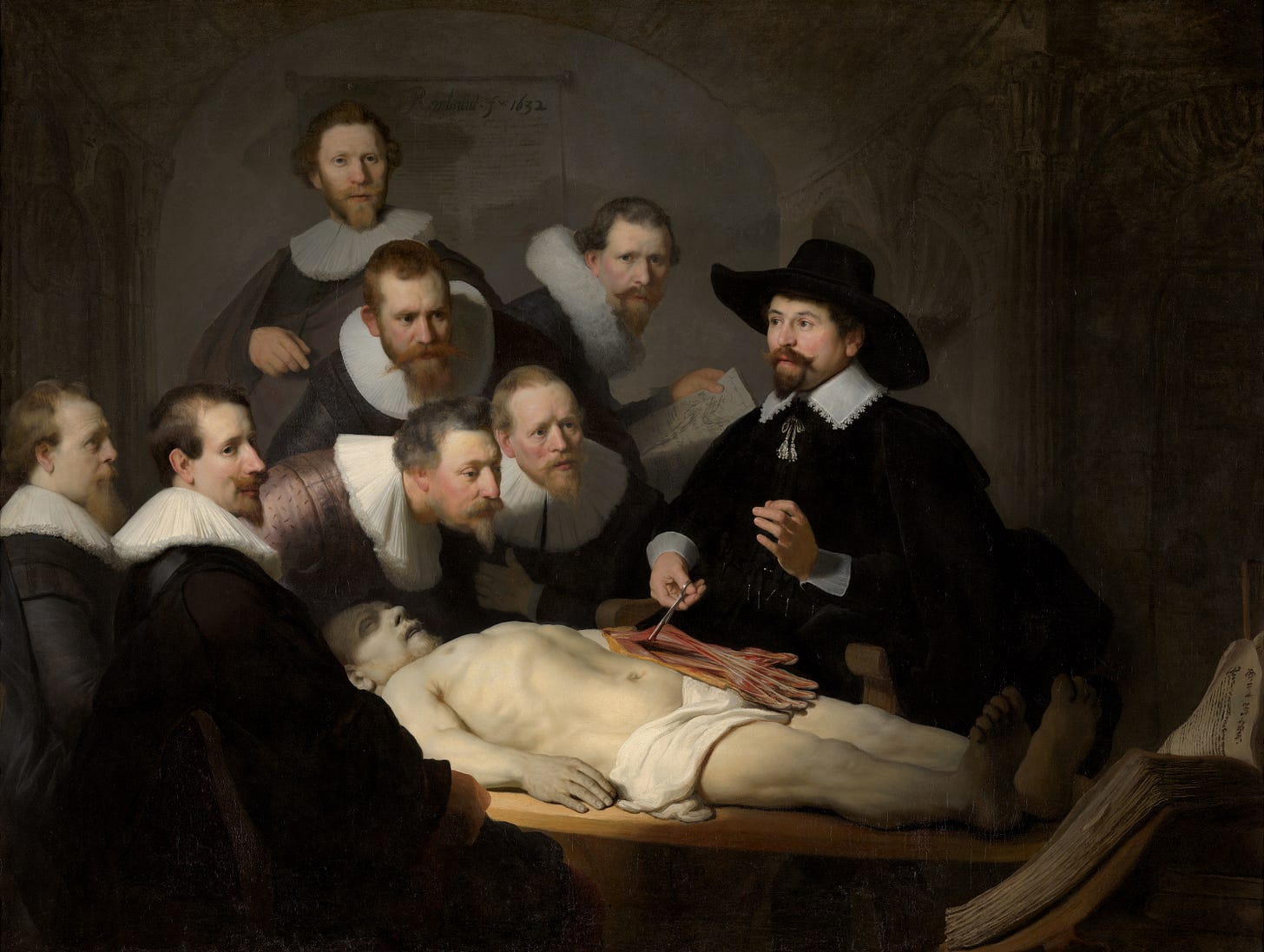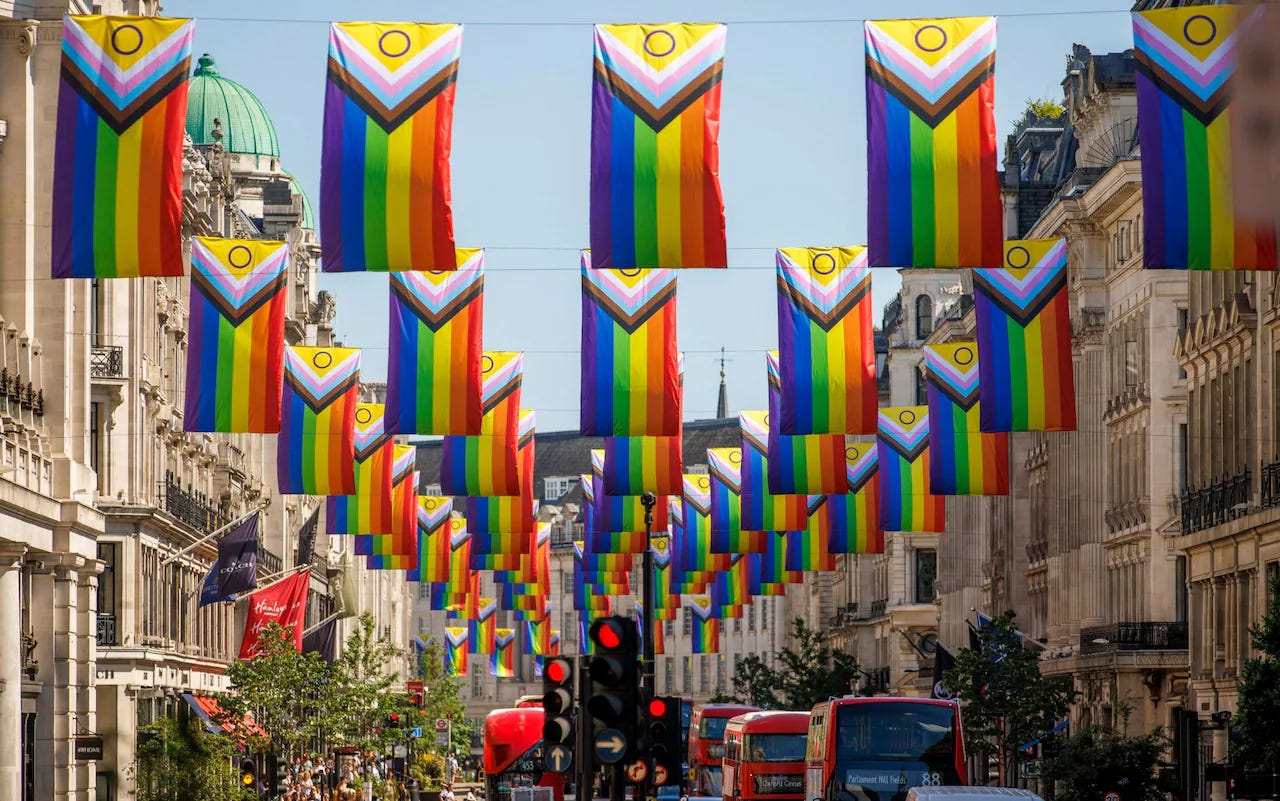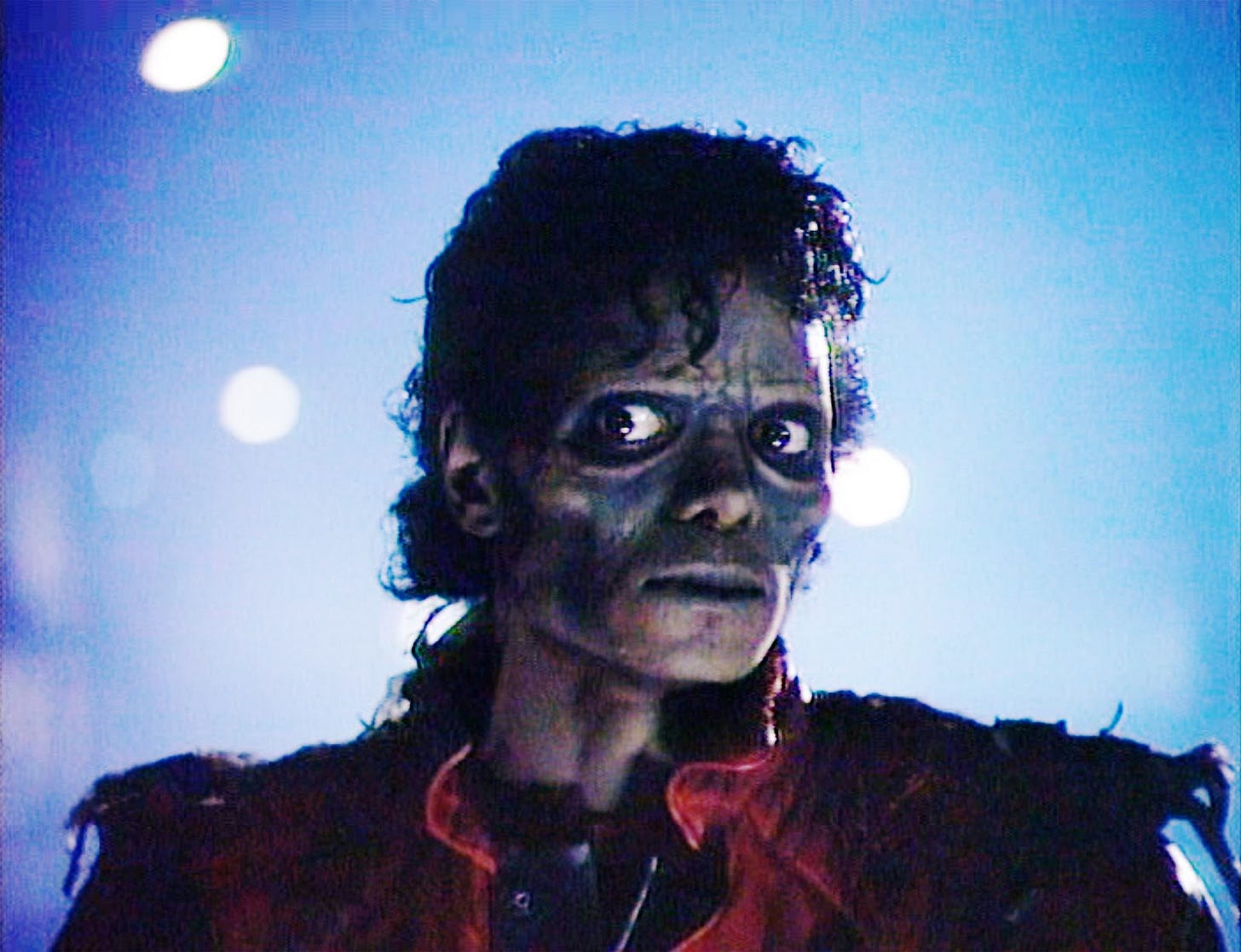Halloween is a time of ghouls and goblins; and, at the University of Toronto, it’s a perfect opportunity for academics to cavort in dress-up as cadavers across the campus. My own thoughts tend towards Michael Jackson’s era-defining 1983 hit video, Thriller.
The morning after, this past All Saints’ Day, saw the induction of two of UofT’s newest Vice Provosts, leaving in their wake my own campus at the University of Toronto Mississauga (UTM) where one of the new appointees served as its fifth dean in as many years.

UTM’s departing Dean was in the job for just 16 months, which is a fleeting snapshot on the geological timescale of a university’s administrative life. In that time I encountered him just twice—in meetings that happened to bookend his career as the campus’s top administrator. The first was to negotiate what was to become my voluntary departure from my directorship of a prominent graduate program—one I had laboured over for more than 16 years. The second came lately, when I stood accused of breaching the university’s code on civil conduct and workplace harassment because any number of unidentified colleagues have gone and complained about me. By means of my ‘poison’ pen (my phrasing, not theirs), I’m deemed to have created a discomfiting climate in the workplace such that these colleagues can no longer sit in a meeting with me for fear of deserving ridicule online and in the media. My immediate unspoken response to them, naturally, is not to take a meeting with me. I am now overflowing with contrition, knowing full well that everything has been duly recorded in my bulging personnel file.
I’ll spare you the gory details, but from behind a luxuriant beard I was read a statement alleging my ‘derogatory’ and sometimes even ‘defamatory’ writings on this Substack. At one point, I used the word ‘buffoonery,’ for instance. And let’s face it, characterising some (or conceivably all) of my peers—even if I overlooked to explicitly name every one of them—as ‘second-class minds’ is clearly overstepping the line of professional conduct. The fact that someone drew that line while I wasn’t looking, I realise is not a plausible defence.
I also learned that my mischaracterisations in my first article for the National Post prompted unspecified threats of violence. Let me take this opportunity to outright condemn such behaviour; and the perpetrators out there should feel thoroughly ashamed. If I were the Dean, I should’ve called the cops on you.
Though much of this may seem like an impenetrable enigma to most, such thankless duties are all part and parcel of the job description for deans, namely supervising faculty appointments, dispensing discipline to uncompliant reprobates like me, and presiding over the withering vine that is the campus’s embattled budget. The fact that, in my case, my interlocutor is reduced to reciting verbatim off a prepared script lays bare the current state of our universities, mired in procedurals and policy observances. The directives come from above, from high-ranking legates in the university’s public square.
At the apex—its summit more bitter than a needle—is Professor Meric Gertler, the University of Toronto’s President. I am going to take a wild leap of faith and presume that in naming him, I won’t be prompting any further acrimony, since it appears he occupies a somewhat public-facing place in our broader society. But in these dark days, you never know.
Unlike three quarters of presidents of Ivy League schools across North America, Gertler is a man in the top job. I have met him once. He is compact, silver-haired, likeable and armed with a ready smile. The eyes, I recall, were unfathomable. He is admired by many, but he is also not short of outspoken critics. Bearing the burden of leading Canada’s premier university through troubled times, especially this past year since the October massacre in Israel and the widely publicised campus protests, has been formidable. Gertler has publicly championed tolerance and defended freedom of speech.
Exasperation at the emergence of a lone-wolf professor that Jordan Peterson has described as “an eloquent new voice on the side of meritocracy and the tradition of truth” is entirely understandable.
There’s an appealing historical parallel. Henry II, the great medieval king and father of the English common law, is famed for crying in frustration over his quarrelsome Archbishop, Thomas Becket, “Will no one rid me of this turbulent priest?” What followed was a deputation of four knights bursting into Canterbury Cathedral and quickly resolving Henry’s ‘concerns’ by loping off the top of Becket’s head in memorably grisly fashion.
The fact that I appear, potentially, to find myself Marie Antoinette-like on a journey of shame as the cart draws me to the guillotine will doubtless be met with cries of glee from the craven host of my multifarious critics in the Twittersphere and across the UTM campus. There has always been an appetite for public sacrificial punishment, and the mob is as bloodthirsty today as it ever was, and just as implacable.
But allow me to remind you that every single person I have called out in my articles, here and in the press, holds a position of authority and draws a salary that is funded in part from the taxpayers’ purse, and my criticisms, and the ridicule they find so offensive, are reactions to their own decisions, prejudiced as they are by a pseudo-religious belief system sprung from neo-Marxism and Postmodernism.
There remains a burning question. Why is any of this happening at all? For the simple reason that the university is sandwiched between two conflicting responsibilities. It is required to defend the primacy of academic freedom on the one hand and at once shield its employees from harm on the other. What’s unfolding, then, is a polarisation favouring the latter over the former.
But if nurturing safetyism is essential, if professors can demand satisfaction by dint of perceived offence to written criticism levelled against them, then where does this leave us? Will Prime Minister Justin Trudeau file suit against fellow MP Pierre Poilièvre for workplace harassment? Such nanny-stateism casts an authoritarian shadow across the college lawns. Whistleblowing is essentially outlawed. Is this what our universities have become?
By comparison, how has the university treated its Jewish employees who ran the daily gauntlet of the pro-Palestine encampment on King’s College Circle earlier this year? Not well, according to many vocal critics, who accuse the amnesty afforded to the encampment’s organisers as a form of covert antisemitism.
In my own case, precisely where were the university’s purveyors of empathy and compassion after I attended an Anti-Racist Pedagogies session hosted at UTM by five female professionals, when in response to my dismissing their claim that “there is no such thing as the truth”—referring to subjective truths and how everyone’s is different and unfalsifiable—I was decried as a “white Eurocentric person,” and shamed for my ancestry and the countless crimes committed by British Imperialism. They demurred that Britain in its past had any positive impact on the world. Where were these same guardian angels when I was subjected to a Kafkaesque postmortem interview by administrators responding to complaints about my ‘toxic’ stance at that event? I was deeply offended and no one cared.
When I discovered that my home department, the Institute for Management & Innovation (IMI), in the aftermath of an event open to all had chosen to conflate award-giving with Pride Month, the winners posing for photo-ops in front of a balloon-rainbow rendition of the Pride Progress flag, I met with higher-ups to discuss the significance and impact of this seemingly innocent declaration of allyship.
As Andrew Doyle has capably described, that flag, to many same-sex attracted folks, has all the capacity for revulsion that an armband emblazoned with the Star of David has to a Jew, aligning as it does with an unfalsifiable ideology seeking to ‘correct’ young gay adolescents by affirming them down a pathway of puberty blockers, cross-sex hormones and irreparable surgeries.
More specifically, the Progress flag calls for the shaming of gay people everywhere for excluding members of the opposite biological sex from their dating pool; and it threatens the inviolability of women’s spaces. Faced with explaining this to straight folks, I found the whole matter deeply uncomfortable, making me second guess why my concerns as a gay man could be cast aside so easily. Ever since, visiting my own office on campus has been a notably awkward affair. Where was the university’s consideration for me during all of that?

This all looks a good deal like two-tier policing. It exposes the asymmetric application by the university’s officials of its core tenets. In my own ‘lived experience,’ the proceedings bear the unmistakeable whiff of authoritarianism, more akin to the post-war Soviet Union than modern-day Canada. To my fellow professors—no, not those claiming victimhood in reaction to my criticisms—to all others, beware that freedom of expression is under threat. Bow down to the orthodoxy, or at the very least couch your assertions with such delicacy that no one could conceivably object.
But feigned kindness tellingly squanders intellectual horsepower. To borrow from Professor Peterson, “in order to be able to think, you have to risk being offensive” Why? Because some truths are painful.
Speaking of painful truths, what’s altogether more disturbing than any number of exuberant palm-canings, though, is the realisation that the ongoing turnstile management at UTM over the last half-decade has cost the university, and by extension the taxpayer, in excess of $1.5 million in decanal salaries and taxable benefits according to Ontario’s Sunshine List.
Yet, over that same period, we have seen the appearance of a massive budgetary black hole—according to one source, one that will grow to nine figures over five years—and the copious implementation of austerity measures across departments. Non-essential elective courses have been ruthlessly slashed, for instance. Meanwhile, my home department, and the office of the dean that presides over it, collectively employs more than 70 bureaucrats, the vast majority of whom neither teach nor conduct any academic research, with an estimated total annual cost in the mid-single-digit millions.
Now, you would’ve imagined that university deans are appointed to these crucial fiduciary roles for their relevant skills but prepare to be surprised. Come the New Year, we will see the arrival of our sixth dean since 2019—the current incumbent is only a limited engagement—and that fortunate individual will be able to count among their predecessors a geographer whose writings drip with the unmistakeable language of social justice ideology, a communications specialist whose headline contribution was helping to introduce the world’s very first autistic hand puppet, a world authority on social first impressions claiming that one’s earning capacity can be divined from facial cues, and a climate champion for polar bears.
Misguided critics, grasping the foregoing and unacquainted with the solemn observances and rites of passage through the academy, might be forgiven for thinking that the campus comports itself with all the Canadian dignity and gravitas of a clown on a pogo stick wearing a bearskin and whistling a refrain from Joni Mitchell. Assuredly, this brand new incoming ‘Project 2025’ dean will be likewise well-equipped for the task ahead, in a calendar year that promises to see major national political change.
Meanwhile, the vast capital expense of erecting a new science building hosting UTM’s Centre for Medicinal Chemistry, bearing a price tag that I was told amounts to more than $100M, has seemingly failed so far to diversify its exposure to risk, having placed all of its goose eggs—the four enterprises it lists on its website—into one intellectual basket guided by a single founding visionary and entrepreneur, Professor Patrick Gunning.
For UTM as a whole, this all paints a picture that is rather far from auspicious, a sentiment that was perfectly captured by Principal Alex Gillespie, famous medievalist and all-around good egg, in her recent campus-wide announcement.
“UTM has had some change in our academic leadership recently, with our last two appointed deans … taking key positions elsewhere at UofT. These changes can be hard, I know.”
No kidding.
“So, thanks for everything you do to make it possible.”
Fortunately, this week’s landslide victory by Donald Trump and the Republican Party in the U.S. is a bellwether of major change to come, as the federal Department of Education stands to be abolished and the woke ‘diversicrats’ are inevitably sent packing. Let’s hope that here in Canada, a country that must call a general election by next October, we soon see a new vision for the nation’s premier university; or, at the very least, an emerging leadership team at my own campus that propels us all forward to future success—and with fewer ghoulish platitudes.





Love your commentary. I never regret my decision upon graduating McGill engineering in 1988 to go straight to industry rather than pursue any further formal schooling, not to mention ever making at attempt to work in academic setting. And things have obviously only gotten worse over the past decades.
It seems to me that the US Trump landslide really IS a sign that North American Anglosphere normies have had enough with Critical Social Justice and if I was an academic and true believe in Grievance Studies and non-value added secondary education, I would start getting worried.